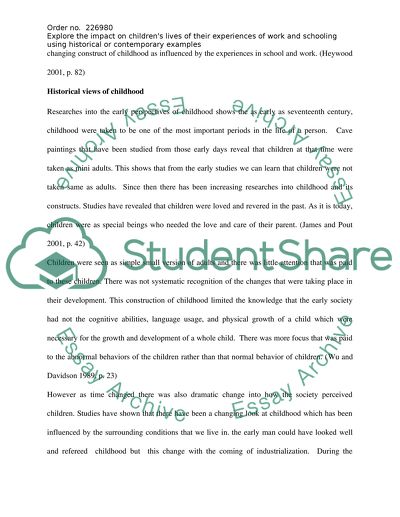Cite this document
(“The Impact on Children's Lives of Their Experiences of Work and Research Paper”, n.d.)
The Impact on Children's Lives of Their Experiences of Work and Research Paper. Retrieved from https://studentshare.org/psychology/1515992-childhood-essay
The Impact on Children's Lives of Their Experiences of Work and Research Paper. Retrieved from https://studentshare.org/psychology/1515992-childhood-essay
(The Impact on Children'S Lives of Their Experiences of Work and Research Paper)
The Impact on Children'S Lives of Their Experiences of Work and Research Paper. https://studentshare.org/psychology/1515992-childhood-essay.
The Impact on Children'S Lives of Their Experiences of Work and Research Paper. https://studentshare.org/psychology/1515992-childhood-essay.
“The Impact on Children'S Lives of Their Experiences of Work and Research Paper”, n.d. https://studentshare.org/psychology/1515992-childhood-essay.


